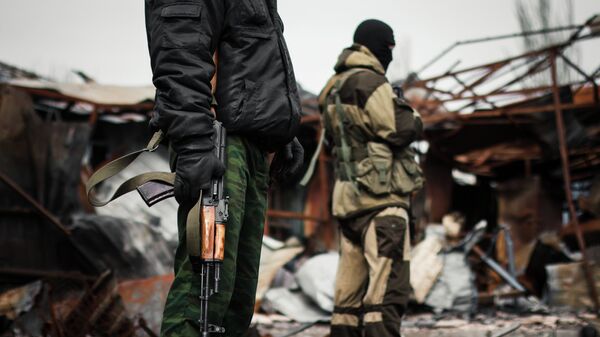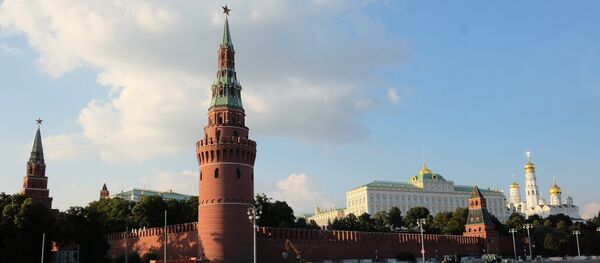In a video message to US President Donald Trump, posted on the Open Ukraine YouTube channel, former Ukrainian army serviceman Alexander Medinsky claimed that Kiev used chemical weapons during its military operation in Donbass.
Addressing Trump as “an irreconcilable fighter against the spread of poisonous agents and the use of chemical weapons of mass destruction,”
Medinskly, who took part in combat operations in Ukraine’s southeast, said that in the summer of 2015, Kiev’s Special Operations Forces (SOF) confiscated a chemicals lab used by the pro-Kiev volunteer Donbass Battalion and took it out to Kiev where it worked until the end of 2016 and was later moved to a SOF base.
According to Medinsky, people working at the lab had been ordered to develop chemical agents for use against enemy manpower and which he claims were later put to use in Donbass.
"I’m ready to testify in US courts, to the FBI, NSA and CIA about chemical weapons use by the Kiev military,” Medinsky said, adding, that he was ready to make more detailed information available to representatives of the US intelligence community.
He also mentioned an SOF doctrine, which allows the use of poisonous agents and explosives not only against members of the Donbass militia, but also against journalists, politicians and public activists “opposed the Poroshenko’s regime.”
As early as in May 2015, the leaders of the self-proclaimed Donetsk People’s Republic (DPR) warned that Kiev was ready to start developing chemical weapons which it could later use and blame it all on the independence supporters.
The DPR defense ministry later accused Kiev forces of firing artillery shells near Slavyansk, which ”dug into the ground,” shrouding the area in smoke.
More than 10,000 people have been killed since the start of the armed conflict in Donbass four years ago.
READ MORE: UN: Millions Suffer From Lack of Aid in Conflict-Battered Eastern Ukraine
Kiev launched a military operation in the east of Ukraine in 2014, after local residents refused to recognize the new government that came to power in what they consider to have been a coup.
In February 2015, the warring parties signed the Minsk peace accords to end the fighting in the region, but the situation remains tense, with both parties accusing each other of ceasefire violations.



